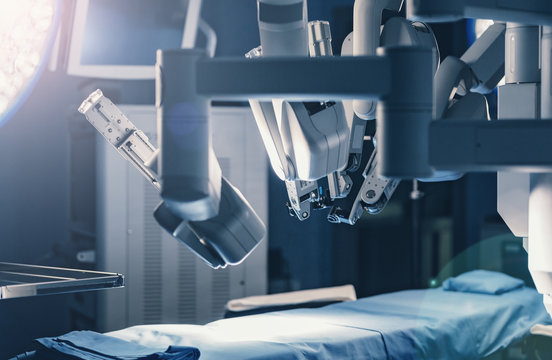Robotic Surgery: What Is It?
Hospitals with a focus on robotic colon and rectal surgery do hundreds of operations each year. These surgeons have honed their technical abilities through practice. Every patient has different needs, and by using the right technology, they provide the best care they can. Board-certified colorectal surgery specialists treat a variety of colorectal illnesses utilizing minimally invasive surgical techniques, including colon and rectal cancer, diverticulitis, inflammatory bowel disease, and rectal prolapse.
Laparoscopy
Laparoscopic surgery is the least intrusive technique that is most often used in colon and rectal surgery. Parts of the colon and rectum may be removed via very small incisions using laparoscopic surgery, which makes use of a digital camera and contemporary tools. It has been shown that laparoscopy improves patient outcomes, including infection risk and length of hospital stay. These advantages stem from the smaller incisions' reduced pain and accelerated healing times.
A Kind Of Surgery That Makes Use Of Robotic Technology Is Called Robotic Surgery
Robotic surgery is a kind of minimally invasive colorectal surgery that is used when medical professionals believe it will be safe and clearly beneficial for the patient. Robotic surgery employs small incisions, similar to other minimally invasive techniques, which may reduce the risk of complications compared to larger incisions or open surgery. On the other hand, robotic surgery is a more recent technique that hasn't seen as much investigation. If robotic surgery is performed improperly, hospital and other medical costs may increase. Surgeons are confident in their ability to use robots correctly, professionally, and only when it is in the patient's best interests.
Robotic surgery provides a variety of advantages over laparoscopy because to the special wristed equipment, including better ergonomics and optics for the operating surgeon. In the instance of rectal cancer, the robot makes it possible to remove the rectum with more precision from the constrained space where it is located. In situations like these, when laparoscopic surgery's safety and effectiveness haven't been fully established, maybe as a consequence of the difficulty of laparoscopic pelvic surgery, the advantages of robotic surgery are especially beneficial. Therefore, the improved ergonomics of robots are highly helpful in the treatment of colorectal illnesses.
Robotic colorectal surgery could be advantageous for the following conditions:
- A kind of cancer that affects the colon is called colon cancer
- Tumors in the rectus
- Irritable bowel syndrome (IBD) is a kind of inflammatory bowel disease (diverticulitis)
- Crohn's disease affects the anus, colon, rectum, small intestine, and duodenum
- To treat ulcerative colitis, complete proctocolectomy
- The trans-anal condition
- Rectal mucosa prolapse
- Cancer and pelvic organ/rectal prolapse are treated with multivisceral surgery (multiple organ systems) in conjunction with urology and gynecology
Robotic surgery and laparoscopy, which are less intrusive treatments, are not suitable for every patient.

